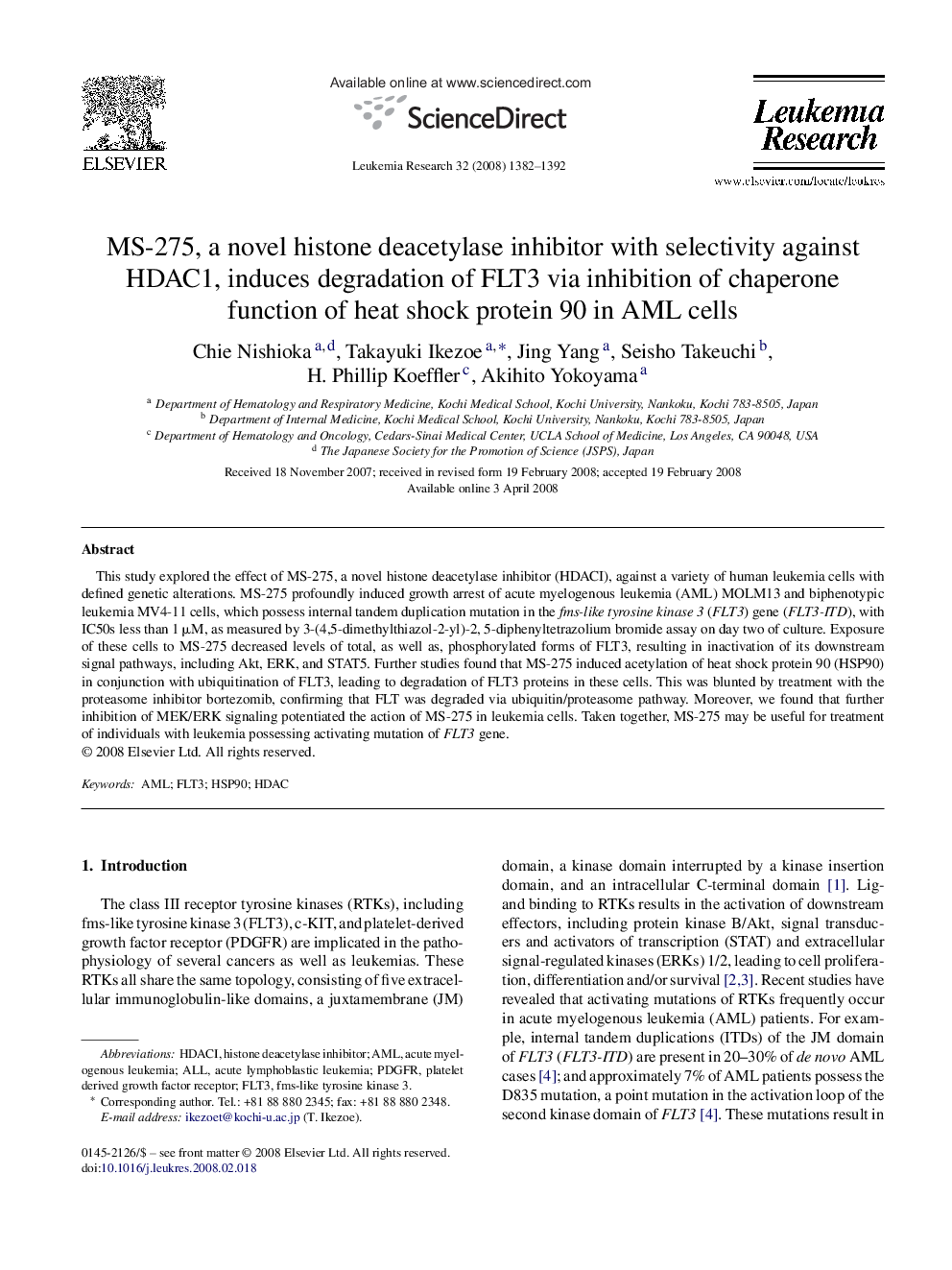| Article ID | Journal | Published Year | Pages | File Type |
|---|---|---|---|---|
| 2138957 | Leukemia Research | 2008 | 11 Pages |
This study explored the effect of MS-275, a novel histone deacetylase inhibitor (HDACI), against a variety of human leukemia cells with defined genetic alterations. MS-275 profoundly induced growth arrest of acute myelogenous leukemia (AML) MOLM13 and biphenotypic leukemia MV4-11 cells, which possess internal tandem duplication mutation in the fms-like tyrosine kinase 3 (FLT3) gene (FLT3-ITD), with IC50s less than 1 μM, as measured by 3-(4,5-dimethylthiazol-2-yl)-2, 5-diphenyltetrazolium bromide assay on day two of culture. Exposure of these cells to MS-275 decreased levels of total, as well as, phosphorylated forms of FLT3, resulting in inactivation of its downstream signal pathways, including Akt, ERK, and STAT5. Further studies found that MS-275 induced acetylation of heat shock protein 90 (HSP90) in conjunction with ubiquitination of FLT3, leading to degradation of FLT3 proteins in these cells. This was blunted by treatment with the proteasome inhibitor bortezomib, confirming that FLT was degraded via ubiquitin/proteasome pathway. Moreover, we found that further inhibition of MEK/ERK signaling potentiated the action of MS-275 in leukemia cells. Taken together, MS-275 may be useful for treatment of individuals with leukemia possessing activating mutation of FLT3 gene.
